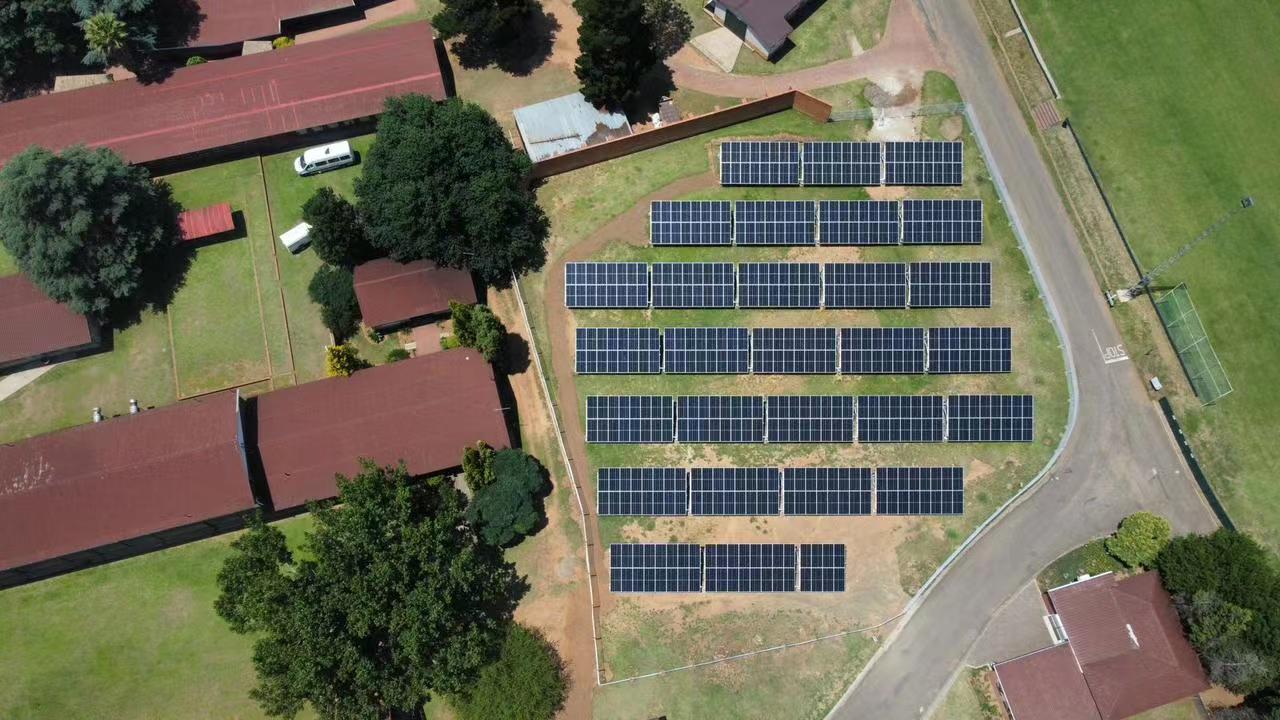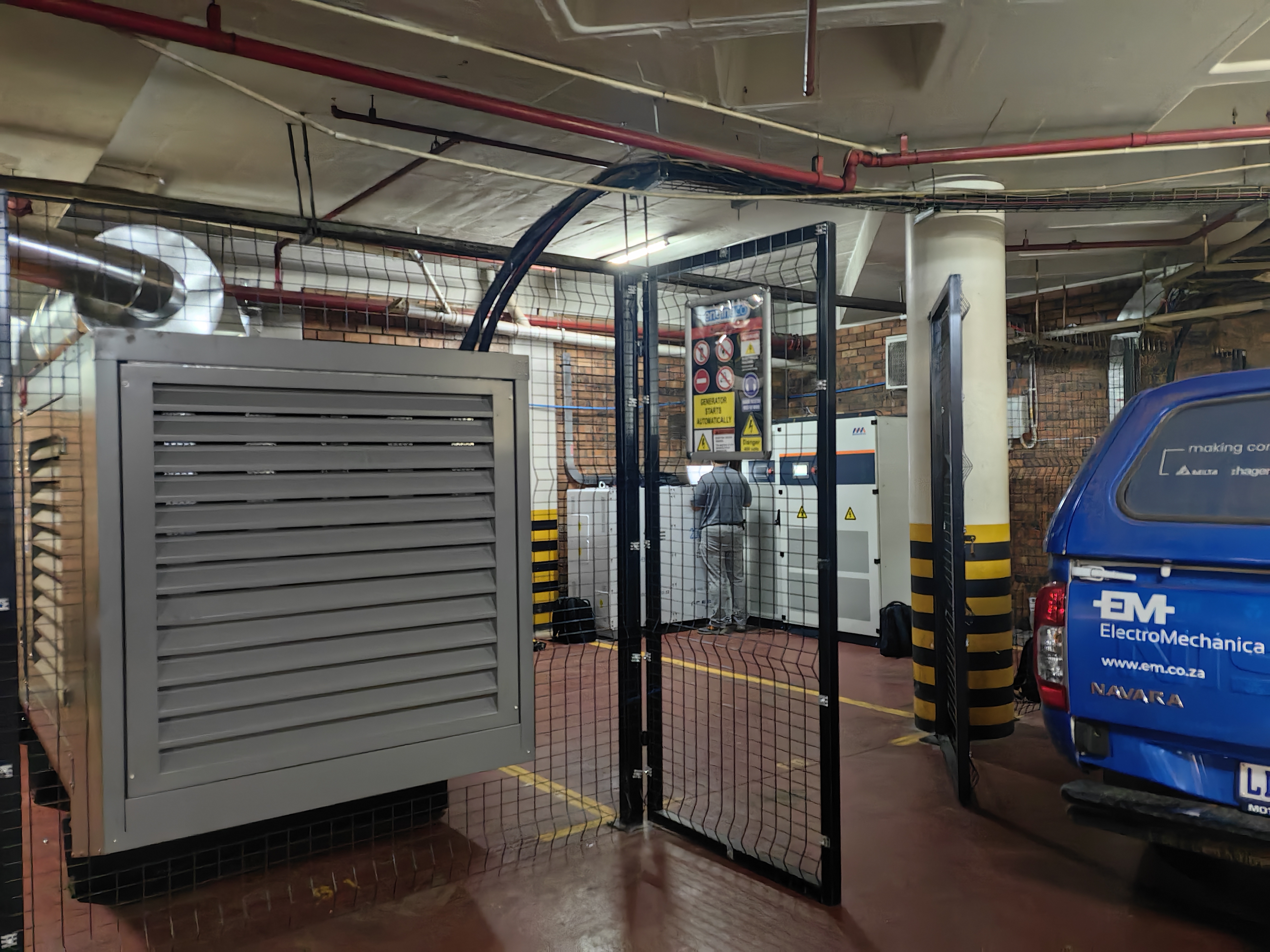

Farms require dependable energy solutions to succeed. MPS hybrid inverters provide a highly integrated approach to building microgrids swiftly and effectively. These systems store excess solar energy, ensuring reliable power during outages. With smart management capabilities, they optimize energy usage through advanced MPPT technology, cutting costs and enhancing productivity. Their flexible expansion design simplifies energy storage and grid interaction. Microgrids utilizing these inverters reduce dependence on fossil fuels, fostering sustainability and energy independence.
MPS hybrid inverters help farms make microgrids fast. They give steady energy and cut down on using fossil fuels.
These inverters save extra solar energy for later use. This keeps power on during blackouts and lowers energy bills.
The modular design makes it simple to add more parts. This helps farms meet future energy needs and stay eco-friendly.
MPS hybrid inverters are advanced devices that manage energy flow in microgrids. They convert direct current (DC) from solar panels into alternating current (AC) for use in your farm's electrical systems. These inverters also store excess energy in batteries, ensuring power availability when solar panels are inactive. By balancing energy production and consumption, they help you maintain a stable and efficient microgrid.
DC coupling solution, integrated photovoltaic MPPT unit, inverter unit, STS unit, maintenance bypass unit, all-in-one design.
Software: EMS energy management strategy is diversified, self-generation and self-use, battery priority, hybrid mode, optimal mode, distributed photovoltaic inverter mode to meet diverse needs.
At the same time, it has a complete battery protection mechanism, a complete fault protection mechanism, a key component redundancy design and a complete EMS strategy management
Built-in STS, supports on-grid and off-grid operation, and has off-grid switching function. The switching time between grid-connected and off-grid is <20ms.
Photovoltaic modular design, easy maintenance, and strong expansion capability.
Supports on-grid photovoltaic inverter function in case of battery failure, which broadens the application scope of photovoltaics.
When the grid fails, photovoltaics can charge the battery to prevent the battery from being discharged and protect the battery.
Supports 6 machines in parallel, and can build a maximum of 3MW microgrid system.
Highly integrated: MPS hybrid inverter integrates photovoltaic power generation, energy storage and grid interaction functions, simplifying system design and installation.
Plug and Play: Modular design, easy installation, rapid deployment, shortening construction period.
Intelligent management: Built-in advanced energy management system (EMS) to monitor and optimize energy production, storage and consumption in real time.
Flexible expansion: Supports parallel operation of multiple devices, and can gradually expand the scale of microgrid according to farm needs.
Farms without microgrids often struggle with energy reliability and rising costs. High energy consumption combined with an unstable electrical grid creates significant challenges. You may experience frequent power outages, which can disrupt critical operations like irrigation, refrigeration, or feeding systems. These interruptions can lead to product losses and reduced productivity.
Energy costs also pose a major concern. Without a microgrid, you rely heavily on the main grid or diesel generators. This dependence results in unpredictable and often higher energy expenses. For many farms, managing these costs becomes a constant challenge, especially during peak demand periods.
MPS hybrid inverters help you achieve energy independence by storing excess energy from renewable energy sources like solar panels. This stored energy ensures a reliable power supply during grid outages or at night. If your farm is in an area with inconsistent grid access, these inverters provide a dependable solution. By integrating energy storage systems, you can maintain a steady energy flow, even when renewable energy sources are unavailable.
Using MPS hybrid inverters reduces your reliance on expensive grid electricity or diesel generators. These inverters optimize energy management by prioritizing stored energy during peak demand periods. This approach lowers your energy costs and improves energy efficiency. Their modular design allows you to expand your microgrid without significant upfront investments. You can add more renewable energy sources or energy storage systems as your farm grows. This flexibility ensures cost-effective electricity for your operations. With better energy management, you can streamline processes and reduce waste, leading to sustainable economic growth for your farm.
MPS hybrid inverters support environmental sustainability by enabling the use of renewable energy sources. By relying on solar energy systems and other renewables, you reduce your dependence on fossil fuels. This shift lowers greenhouse gas emissions, contributing to a cleaner environment.

Project background: The farm power grid is unstable and power outages are frequent; 20 photovoltaic grid-connected inverters and 2 365kVA diesel generators have been installed, mainly for farmland irrigation and large harvesting machinery products
User demand: Improve power stability and reduce the use of diesel generators

Solution: 1MW hybrid inverter + 4 MPPT modules + 1.6MWh lithium battery, make full use of photovoltaic power generation, replace traditional fuel generators, and provide backup power for important load equipment in the site to maintain the healthy growth of crops.
Application mode: backup power supply
Grid connection time: 2024.06

Project background: The dairy farm in Johannesburg, South Africa, consumes about 100,000 kWh of electricity per year. In addition to milking machines and automatic feeding systems, air circulation equipment and other load equipment in the cowshed and nearby buildings also need power supply.
User demands: Increase the proportion of clean energy power generation utilization, achieve energy self-sufficiency as much as possible, reduce electricity bills, and provide backup power for critical loads in power outages.

Solution: 150kW hybrid inverter + 3 MPPT modules + 300kWh lithium battery + 300kWp PV,formulate microgrid system charging and discharging operation strategies based on South Africa's peak and valley electricity prices.
Application mode: self-generation and self-use, economic mode
Grid connection time: 2024.03
MPS hybrid inverters empower you to build microgrids with highly integrated, smart management, flexible expansion features. These systems simplify microgrid development by optimizing energy management and integrating renewable energy sources. You gain energy independence, reduce costs, and support sustainability. As agriculture evolves, these inverters will drive innovation in microgrid development, ensuring farms thrive in a cleaner, more efficient future.
MPS hybrid inverters manage energy flow in microgrids. They convert solar energy into usable electricity, store excess energy, and ensure reliable power during outages or low production periods.
Yes, MPS hybrid inverters allow flexible expansion. You can add more solar panels or energy storage systems as your farm's energy needs grow, ensuring scalability and adaptability.
These inverters optimize energy usage by prioritizing stored energy during peak demand. They also use advanced MPPT technology to maximize solar energy capture, reducing waste and improving efficiency.